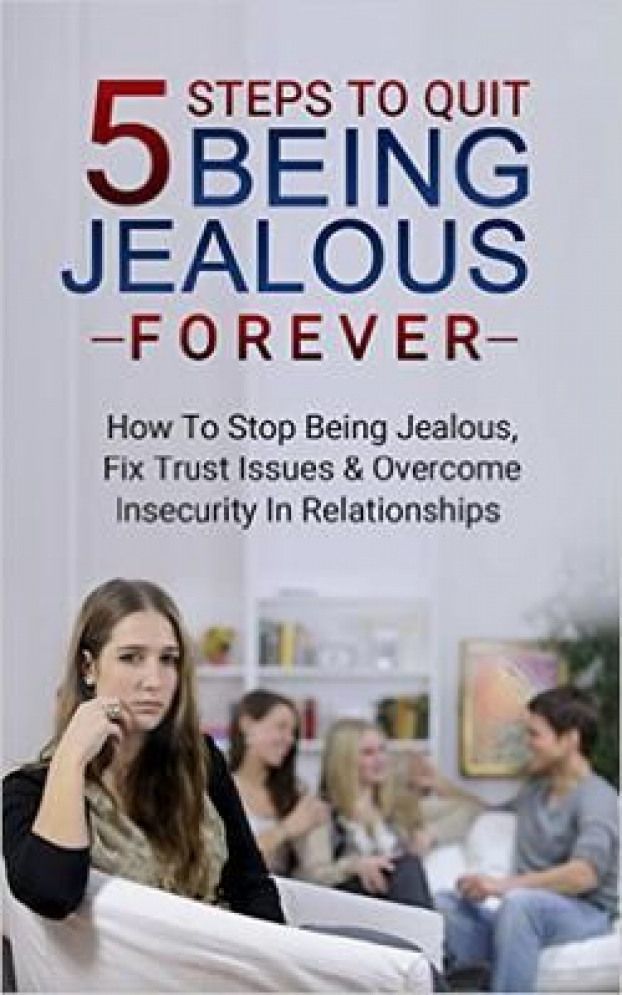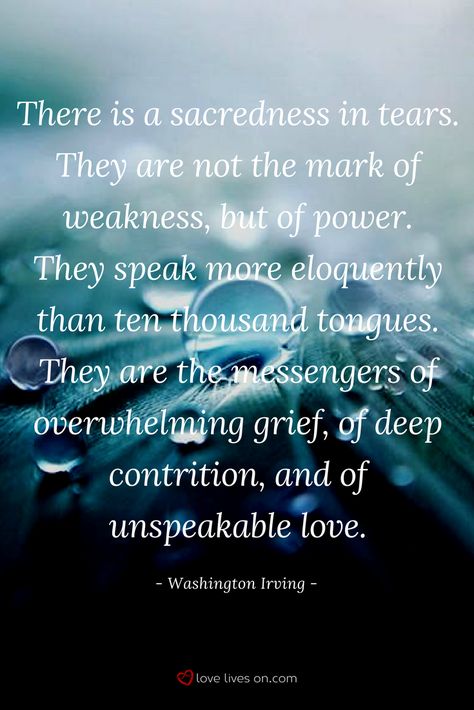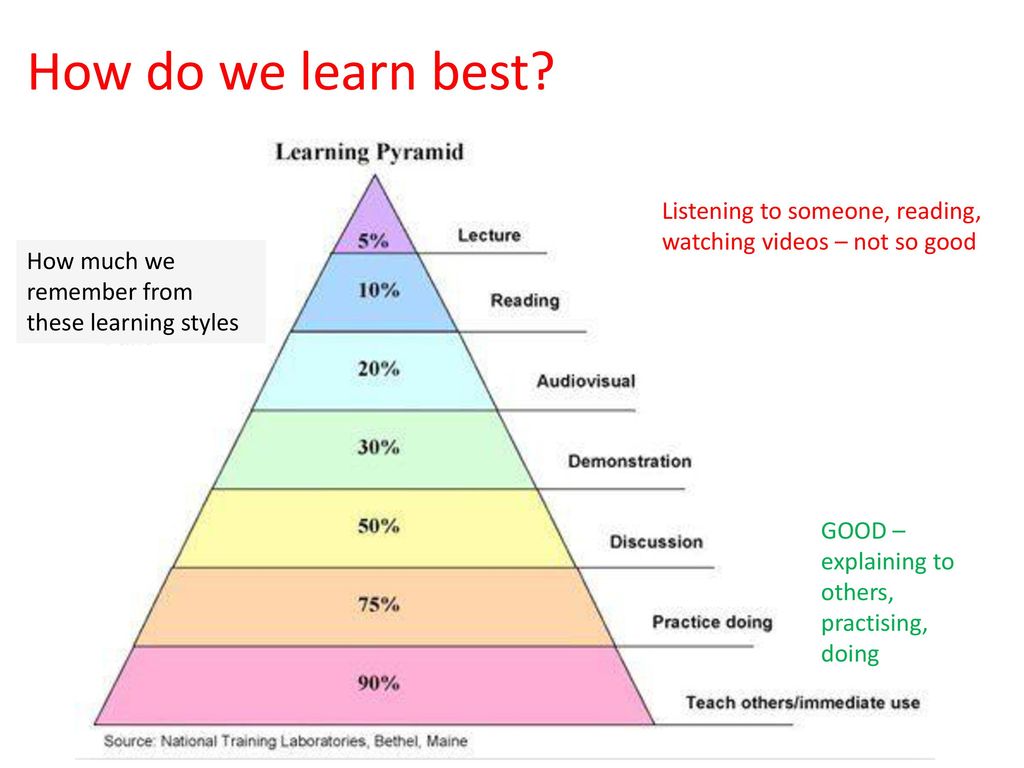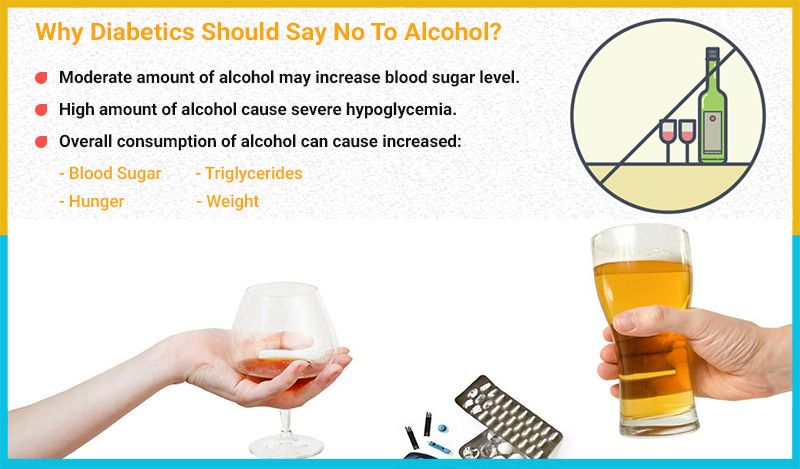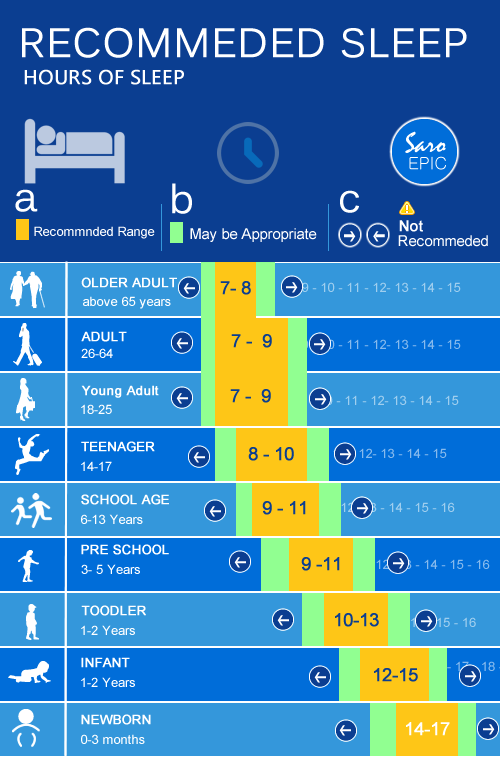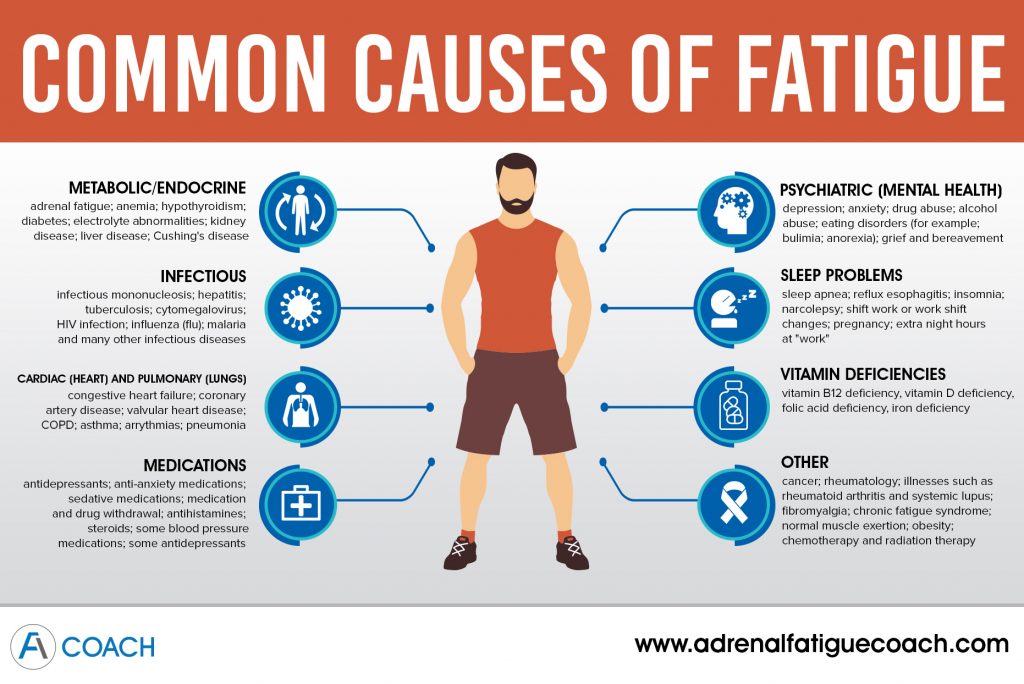I feel needy in my relationship
How to Stop Being Needy or Clingy in a Relationship
Have you ever been told that you're too needy? Has your current or a past partner ever accused you of being clingy or dependent? While your intentions may be entirely good, being too needy in a relationship is anything but that.
What Is Being Needy?
Neediness is an excessive need for acceptance or affection that results in that person repeatedly becoming overly attached to people and depending on them too much.
An insecure attachment is often the culprit behind clinginess in relationships, according to relationship expert Jaime Bronstein, LCSW. "It occurs because the person fears that they will be abandoned in some way or unloved, and it most often stems from childhood and their relationship (or lack of relationship) with one or both parents," she says. "In addition, an insecure attachment style can develop from previous romantic relationships if the person felt like they weren't prioritized or didn't receive enough attention or love from their significant other.
"
Meet the Expert
- Jaime Bronstein, LCSW is a relationship therapist, coach, and the host of “Love Talk Live” on LA Talk Radio.
- Leslie Becker-Phelps, Ph.D, is a licensed psychologist focused on improving relationships. She is the author of Bouncing Back from Rejection: Build the Resilience You Need to Get Back Up When Life Knocks You Down; Love: The Psychology of Attraction; and Insecure in Love: How Insecure Attachment Can Make You Feel Jealous, Needy, and Worried and What You Can Do About It
You may enjoy spending time with your partner, but it’s imperative to have some boundaries in place. With a bit of work and self-awareness, you can learn how to stop being clingy and feel more fulfilled in your relationship.
Read on for expert advice that will help you go from needy to self-sufficient.
What Are Signs of Clingy Behavior in a Relationship?
"It is important to distinguish having needs from being needy," says Becker-Phelps. "Having a need for acceptance and affection is part of being human and is part of what drives people to want close relationships. There is nothing wrong with it, but some people don’t feel comforted or reassured when someone shows caring, so they keep reaching out for more and become needy." Many clingy behaviors are fear-based, adds Bronstein, and can often be a response to past experiences with a parent or ex-partner who was unreliable or inconsistent with their words or actions. Whatever the cause, there are some clear signs of clingy behavior, including:
"Having a need for acceptance and affection is part of being human and is part of what drives people to want close relationships. There is nothing wrong with it, but some people don’t feel comforted or reassured when someone shows caring, so they keep reaching out for more and become needy." Many clingy behaviors are fear-based, adds Bronstein, and can often be a response to past experiences with a parent or ex-partner who was unreliable or inconsistent with their words or actions. Whatever the cause, there are some clear signs of clingy behavior, including:
- Not giving your partner space or alone time, especially if they have specifically requested it
- Calling or texting your SO nonstop when you're not together
- Panicking if your partner does not respond to your texts or calls
- Monitoring your partner's behavior on social media
- Feeling threatened by your partner's friends or coworkers of the opposite sex
- Attempting to rush into a more serious relationship
- Deceptively creating an image of yourself that your partner finds attractive
- Trying to force a partner to love you
- Attempting to earn someone’s love by doing things they like (and abandoning yourself in the process)
- Asking for reassurance often or frequently asking your partner if they love you
- Being constantly on the lookout for being rejected or betrayed
- Controlling behaviors, such as wanting to track your significant other's location on your phone
If you find yourself, your partner, or someone you know engaging in any or all of these behaviors, it's a sign of relationship insecurity and clinginess.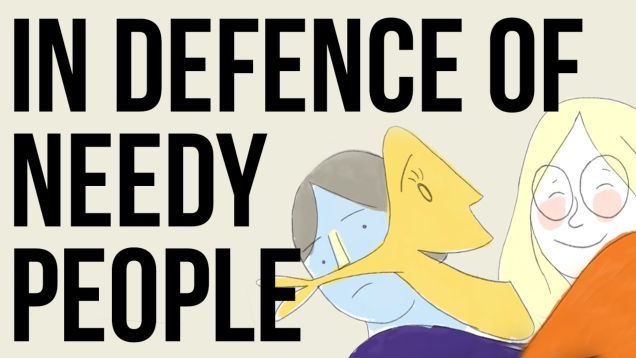 "Someone who loves themselves and feels confident in themselves and the relationship will be able to be apart and not worry," says Bronstein. "They will feel inner peace and stability whether they are with their significant other or not." Conversely, someone who is needy in their relationship will experience anxiety over their partner's commitment to them.
"Someone who loves themselves and feels confident in themselves and the relationship will be able to be apart and not worry," says Bronstein. "They will feel inner peace and stability whether they are with their significant other or not." Conversely, someone who is needy in their relationship will experience anxiety over their partner's commitment to them.
In some cases, the behavior may stem from your partner giving you a significant reason to worry by betraying you in the past through cheating, philandering, or otherwise. "In that case, I suggest that you work through the trust issue with a therapist, counselor, or coach, because it's not healthy to be in a relationship that doesn't have trust coming from both parties," says Bronstein.
How to Stop Being Clingy in Your Relationship
Put Down the Phone
If you tend to be the needy type, you may be used to constantly contacting your partner throughout the day. Whether via text, talking on the phone, or sending pictures, articles, and emails, your days may currently consist of endless back and forth. However, while you may simply miss your partner and enjoy being in close contact with them at all times, this can come off as clingy. Rather than giving your partner space to be able to concentrate on other matters, take on the day, and have some downtime, you may be bombarding, distracting, or annoying them. If you find yourself doing this to distract yourself or procrastinate from doing tasks you don't particularly favor, consider switching it up and texting a friend instead or finding a different outlet for your focus like going for a walk or meditating.
However, while you may simply miss your partner and enjoy being in close contact with them at all times, this can come off as clingy. Rather than giving your partner space to be able to concentrate on other matters, take on the day, and have some downtime, you may be bombarding, distracting, or annoying them. If you find yourself doing this to distract yourself or procrastinate from doing tasks you don't particularly favor, consider switching it up and texting a friend instead or finding a different outlet for your focus like going for a walk or meditating.
When you feel the urge to frequently contact your partner, it’s important to put down the phone. Put it in a box or give it to a friend. Instead, use that time to focus on yourself rather than reaching out.
Pursue Your Own Passions
Being needy in a relationship can often stem from a person’s lack of other interests and hobbies. Strive to have your own life away from your partner and make your personal passions and pursuits a priority.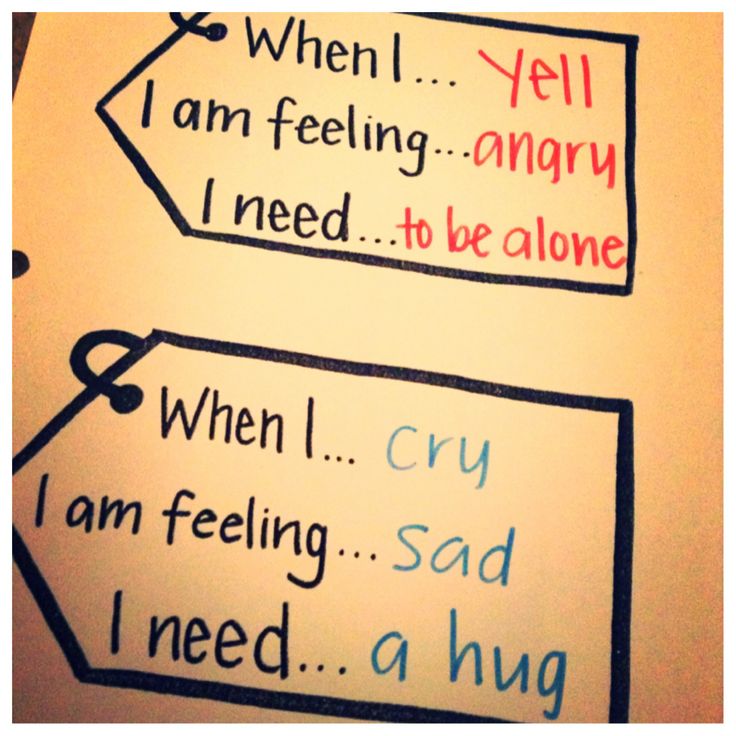 Having activities and pastimes that are important to you can help you to find your own path that’s separate from your partner and create a more whole and fulfilling life for yourself. "Spend more time focusing on your life because your life matters," says Bronstein. "Find other things and people besides your love to spend time with and find activities or hobbies that bring you joy," she continues. "When you are in your joy, you are present, and you don't worry about things, so I highly recommend being in your joy as much as possible."
Having activities and pastimes that are important to you can help you to find your own path that’s separate from your partner and create a more whole and fulfilling life for yourself. "Spend more time focusing on your life because your life matters," says Bronstein. "Find other things and people besides your love to spend time with and find activities or hobbies that bring you joy," she continues. "When you are in your joy, you are present, and you don't worry about things, so I highly recommend being in your joy as much as possible."
Beginning or picking back up a hobby that inspires you is a great way to invest in yourself. Further, advancing in a hobby will offer you a sense of achievement, therefore boosting your confidence and self-esteem. By taking a spin class, signing up for piano lessons, or joining a book club, you’re helping yourself to become less needy by having your own life. This will make you more independent, interesting, and engaging. It will open you up to making friendships with people who enjoy the same things, and build a community for yourself that doesn't rely on one singular connection—a support system you could rely on if things get rocky in your romantic relationship. Plus, you won't find yourself feeling so lost when your partner is absent or doing their own things.
Plus, you won't find yourself feeling so lost when your partner is absent or doing their own things.
Give Your Partner Space
You may not like your partner doing things without you. Whether it’s having dinner with friends, going out to a bar, or seeing a movie, needy people in relationships have a hard time with the fact that their partner has a life away from them. However, it’s vitally important to the health and success of your relationship that your partner is able to do and enjoy things without you, as it’s the unique facets of your personality that make you a better team. Since you’re a couple and not a clone of your partner, you should support your SO's endeavors and desire to go golfing with friends or have a girls' night. This way you’re showing your partner that you care about their needs, that you’re secure in the relationship, and that you place a priority on their happiness—even if it doesn't always include you.
Stop Being Jealous
It’s not uncommon for people to behave in a needy way because they’re jealous or worried about their partner’s loyalty or possible infidelity. "Jealousy is related to fear of rejection or abandonment," explains Becker-Phelps. "When a person is inclined toward unfounded jealousy, they are experiencing an emotional need to hold onto (or cling to) a partner they fear might leave them." For example, you may insist on texting your partner throughout the day because you’re worried about his or her relationship with a cute coworker. Or you may want to hang out with your partner 24/7 because you don't trust their behavior in your absence.
"Jealousy is related to fear of rejection or abandonment," explains Becker-Phelps. "When a person is inclined toward unfounded jealousy, they are experiencing an emotional need to hold onto (or cling to) a partner they fear might leave them." For example, you may insist on texting your partner throughout the day because you’re worried about his or her relationship with a cute coworker. Or you may want to hang out with your partner 24/7 because you don't trust their behavior in your absence.
However, being envious and mistrusting is only going to push the two of you further apart. Since relationships are based on mutual trust, your clingy nature is actually showing your partner that you don’t believe or have faith in him or her or in the strength of your connection. On the other hand, if you choose to trust your partner and work through these jealous feelings and emotions, you'll be far less needy, more relaxed mentally, and your relationship is far more likely to succeed.
Build Your Self-Esteem
"People who have this problem often struggle with feeling inadequate, flawed, or in some way deficient," explains Becker-Phelps.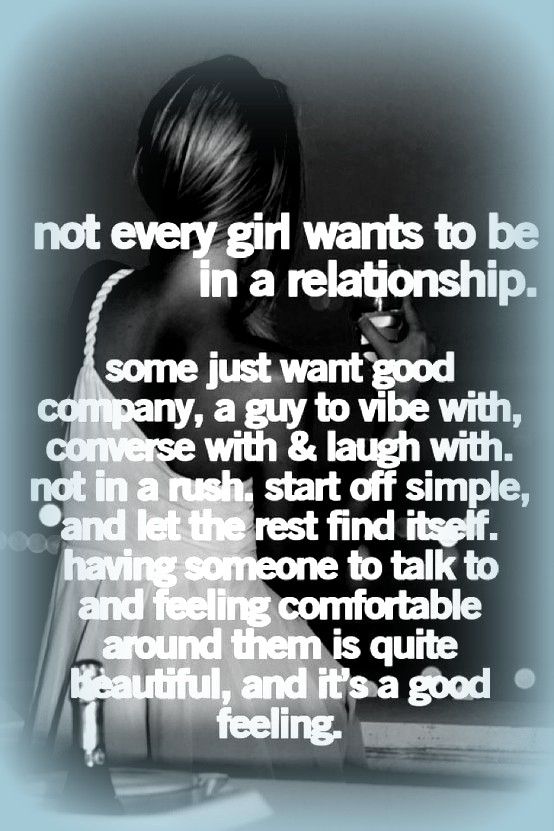 "When others show them caring, they don’t really believe or take it in—but feeling desperate for reassurance, they keep trying to elicit it (even when it’s already been given)." In many cases, being needy stems from a misconception that you need others around at all times for help and support. While it may seem challenging at first, it’s time to recognize that you're able to accomplish things on your own without anyone by your side. You’ll soon recognize that you’re able to have achievements on your own, and that it’s okay to spend time alone and do things without relying on others. Learn to become your own best friend, lover, and support system, and you'll feel much more fortified and self-assured in any situation, regardless of who else is there. "When a person feels more positively about themselves, they are more likely to believe when someone else feels positively towards them," adds Becker-Phelps.
"When others show them caring, they don’t really believe or take it in—but feeling desperate for reassurance, they keep trying to elicit it (even when it’s already been given)." In many cases, being needy stems from a misconception that you need others around at all times for help and support. While it may seem challenging at first, it’s time to recognize that you're able to accomplish things on your own without anyone by your side. You’ll soon recognize that you’re able to have achievements on your own, and that it’s okay to spend time alone and do things without relying on others. Learn to become your own best friend, lover, and support system, and you'll feel much more fortified and self-assured in any situation, regardless of who else is there. "When a person feels more positively about themselves, they are more likely to believe when someone else feels positively towards them," adds Becker-Phelps.
You may even grow to enjoy these moments by yourself and complete tasks and projects on your own or simply relish the freedom of solitude and the opportunities for introspection, creativity, and tranquility that it can bring. If you work toward improving your confidence, self-esteem, and ability to be more self-sufficient, you’ll realize you can flourish and succeed whether in a partnership or on your own. It can be as simple as starting with self-affirmations. "List out your positive traits or strengths and think about how you see them in your life," suggests Becker-Phelps. "Practice doing this with different strengths or situations to help you acknowledge and appreciate positives about yourself."
If you work toward improving your confidence, self-esteem, and ability to be more self-sufficient, you’ll realize you can flourish and succeed whether in a partnership or on your own. It can be as simple as starting with self-affirmations. "List out your positive traits or strengths and think about how you see them in your life," suggests Becker-Phelps. "Practice doing this with different strengths or situations to help you acknowledge and appreciate positives about yourself."
Talk to Your Partner
If you recognize that your behavior is needy or you can sense that your partner is becoming irritated, it's best to be open with them and have a conversation. "Be honest with your significant other about your clingy behavior; own your behavior instead of blaming them," says Bronstein. For example, don't blame the number of people they dated before you for your inability to trust them fully or tell them if they answered your texts faster you wouldn't have to check in so often. Be willing to apologize and let them know you will try your best to change your actions. Finally, advises Bronstein, ask your partner what they need from you in terms of behavior change. This will offer you some guidance as you begin to be more independent in your relationship.
Be willing to apologize and let them know you will try your best to change your actions. Finally, advises Bronstein, ask your partner what they need from you in terms of behavior change. This will offer you some guidance as you begin to be more independent in your relationship.
Be mindful of different love languages and the ways that a person can show up in a relationship. "If you believe you are in a relationship with a healthy, caring partner, practice consciously being open to the ways your partner shows their caring," says Becker-Phelps. "You may find that attending to this makes you uncomfortable. While you recognize the discomfort, continue to challenge yourself in staying with the awareness of the ways they show they care and to being open to feeling that caring."
Spend Time With Friends and Family
Spending time with people who lift you up is one of the best ways to gain confidence and feel more secure in both yourself and your relationship. "I encourage my clients to surround themselves with people who build them up, with who they feel comfortable being around, and who love them unconditionally," says Bronstein. Being with good friends and family is also a great distraction from any negative or anxious thoughts you may be having about your partner. "Spending time with caring others or doing things that you enjoy can also help you be more open to caring relationships," adds Becker-Phelps
Being with good friends and family is also a great distraction from any negative or anxious thoughts you may be having about your partner. "Spending time with caring others or doing things that you enjoy can also help you be more open to caring relationships," adds Becker-Phelps
Be sure to only spend time with people who leave you feeling loved and accepted, since hanging out with people who make you feel bad about yourself can leave you feeling more insecure than before and therefore more likely to exhibit clingy behavior. Bronstein says she inspires her clients to permit themselves to stop associating with anyone toxic or who brings them down.
Establish and Respect Boundaries
Healthy boundaries are a sign of respect for the relationship that you have with your partner as well as the relationship you have with yourself. They communicate that you have an awareness of your own needs and identity outside of a relationship and value them greatly. This sets the tone for how you expect others to treat you because it is how you treat yourself.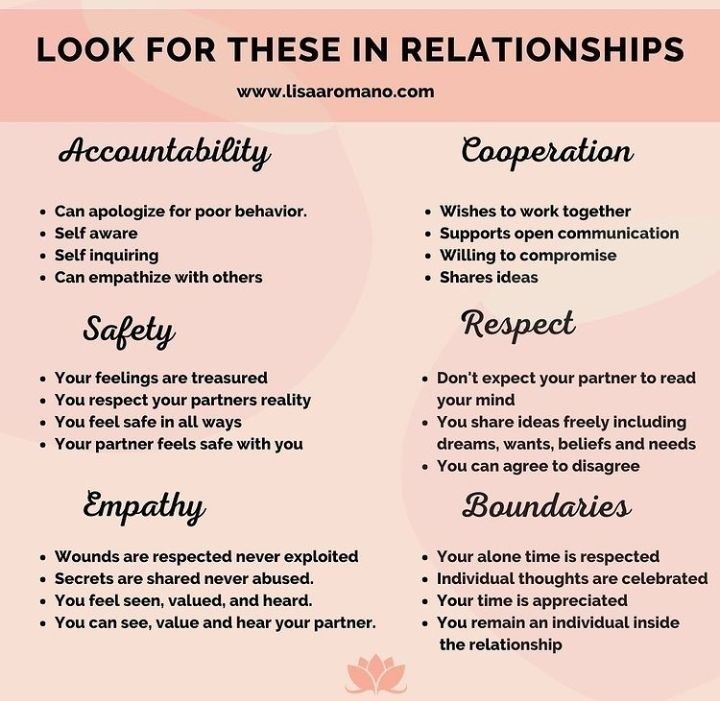 It also provides insight and empathy for any boundaries your partner may have.
It also provides insight and empathy for any boundaries your partner may have.
"When you are loving toward your partner while also setting boundaries, you show them that you care even when you enforce some needed distance," says Becker-Phelps. "Hopefully with time they will begin to trust in your love. Importantly, it is best to do this from a caring or vulnerable position rather than from an angry position that will likely just increase your partner’s anxiety." For example, a boundary might look like asking your partner to not call or text after your bedtime. Instead of defaulting to blaming or accusations, start the dialogue with I-statements that reflect your perspective and feelings.
Address Your Relationship Anxiety Through Therapy
Professional support can help you address your relationship anxiety by developing a more positive relationship with yourself, which will in turn allow yo to open up to others. "Talk in therapy about your struggles," urges Becker-Phelps. "As you do, it can help greatly to develop greater self-awareness from a compassionate perspective. As you gain a better understanding of your anxiety, you can also practice seeing yourself from a more understanding and compassionate perspective." She goes on to add that working with a therapist who you trust and connect with can also help provide a better understanding of others.
"As you do, it can help greatly to develop greater self-awareness from a compassionate perspective. As you gain a better understanding of your anxiety, you can also practice seeing yourself from a more understanding and compassionate perspective." She goes on to add that working with a therapist who you trust and connect with can also help provide a better understanding of others.
FAQ
-
Clingy behavior is caused by an insecure attachment style defined by the fear of abandonment or rejection from a partner. It often stems from an inconsistent or nonexistent relationship with one or both parents in childhood but can also develop from previous romantic relationships where the person did not feel prioritized or loved by their partner.
-
Clinginess in a relationship means one partner is exhibiting behavior that is needy, suffocating, dependent, obsessive, or jealous, often resulting from a negative self image. Clinginess manifests in behaviors like demanding constant physical proximity, lack of independence or autonomy, a need for constant communication, and frequently asking for reassurance, help, or comfort.

-
Let your partner know how much you love and appreciate them and understand their anxiety. Openly communicate how you feel about their clingy behavior and be specific about why it bothers you without casting blame. Support them as they struggle with their anxiety and encourage them to work on finding a greater sense of security within themselves while remaining firm in your boundaries. "It is tempting to try to reassure them enough that they stop feeling anxious and fearing rejection but that usually ends in frustration because the neediness and clinging is about how they experience themselves more than about the current relationship with you," adds Becker-Phelps.
18 Top Deal Breakers In a Relationship to Consider
What Does It Mean to Be Needy in Relationships?
We often desire affection and assurance from our partners, but at what point does seeking attention become a red flag?
It’s natural to feel the need for your partner to demonstrate how much they care about you. It can be the little gestures of affection in relationships that make you feel valued, appreciated, and loved.
It can be the little gestures of affection in relationships that make you feel valued, appreciated, and loved.
Increasingly demanding and urging for more than your partner is already giving, however, can sometimes be referred to as being needy in a relationship.
But what does it really mean to be needy and how can you approach the situation without judgment?
Labeling someone as “needy” can be subjective. It can depend on your personality, culture, and background, as much as it can depend on theirs.
What you may assess as needy, may be the standard for someone else. It’s important, then, to try to approach this topic without judgment and with compassion.
If you’re unaccustomed to regular displays of affection, for example, someone’s need for physical and verbal expressions of love could feel excessive to you.
Wanting to be in touch throughout the day, when you’re used to checking in only once a day, can also read as needy behavior.
Everyone has different emotional and relationship needs.
Needing constant reassurance or avoiding a breakup at all costs, even when the relationship doesn’t work, may be a sign that something else is happening, though.
Some of the behaviors that could be labeled as needy in a relationship, but in reality point to something else, include:
- a push for continuous conversation (texting, calling, emailing, social media posting)
- persistently asking for reaffirmations of love
- seeking out compliments
- wanting to spend every moment together
- difficulty making decisions alone
- anger or sadness when partner spends time with other people
- pessimism toward the relationship or cycling pessimism and optimism
- sensitivity to criticism, even when delivered gently
- need for reassurance, not just in the relationship, but often in other areas of life
- acting jealous without evident cause
If you’re reading this wondering, “Am I needy?” you may benefit from looking beyond your current relationship and at your history as a whole.
- Are you seeing the same behavioral patterns in all your relationships, or is it unique to this situation?
- Have you had a recent loss or a significant change in your life that’s making you feel insecure or in need of extra support?
- Is your partner persistently detached or unexpressive?
- Have you experienced infidelity or manipulation in this relationship?
Differences in attachment styles and relationship expectations, as well as core personality components, can also create a dynamic that may lead to a false sense of someone being needy.
If your partner, for example, isn’t used to communicating when or where they’ll be, you might find you’re checking up on them more regularly than you typically would.
Or, you may be with a partner who isn’t as emotionally available. To them, your emotional needs may feel overwhelming.
This doesn’t mean you’re needy. It might be that you both experience romantic relationships differently, or that the relationship itself needs a closer look.
“Needy” is not a clinical diagnosis. It’s a general term used to describe behaviors often viewed as clingy or attention-seeking. But again, this can depend on culture, background, or relationship goals.
Behaviors labeled as needy often have deeper psychological roots. Some of these may be explained through researcher Abraham Maslow’s hierarchy of needs theory.
While the theory has undergone critique and modification since its introduction in 1943, the core construct remains: Human needs arise from a perceived deficiency in important aspects of your life.
These needs include:
- physiological (survival needs)
- safety
- love and belongingness
- esteem and ego
- self-actualization (the drive to seek self-fulfillment and growth)
Some of your experiences may lead you to feel voids in certain aspects of your life, which in turn could make you develop unhealthy relationship patterns.
Reasons for someone to exhibit needy behaviors include:
- fear of abandonment
- dependent personality disorder
- borderline personality disorder
- codependency
- emotional dependence
- childhood trauma
- insecure attachment styles
- history of domestic violence
- trust concerns
- low self-esteem
- impulsivity
- witnessing the same behaviors during childhood
- anxiety disorders
Only a trained mental health professional can explore the root cause of someone’s behavior in a relationship.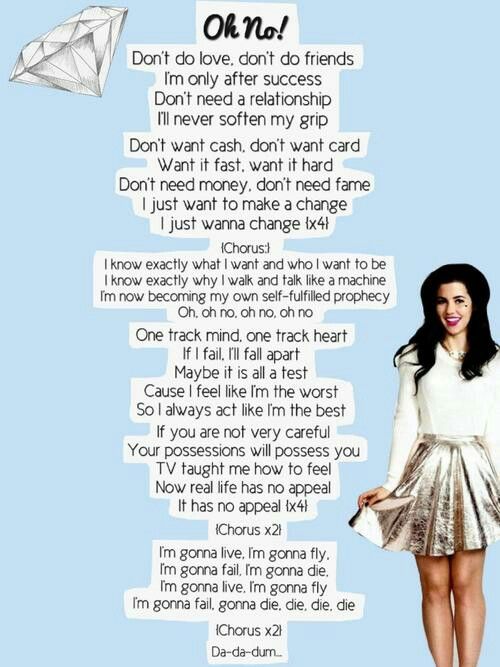 If you feel you or your partner may have faced challenges that are impacting your bond, talking with a therapist can help.
If you feel you or your partner may have faced challenges that are impacting your bond, talking with a therapist can help.
It’s natural to have a reaction when someone else’s relationship style is significantly different from yours.
Openly talking about your individual emotional needs can help establish clear expectations for both of you.
Understanding that what some people may label as needy behaviors often come from unresolved emotional wounds may help you focus on empathy and support.
If you feel you or your partner may be facing other personal challenges, talking about it can also help. It may also be a good idea to avoid judgment and to seek professional help.
A mental health professional can help you explore the root cause of some of these behaviors as well as how to set boundaries in your relationship. You and your partner can both learn what unmet needs are driving these behaviors.
When you have a better understanding of the dynamics at place, you can work together on a way to move forward and strengthen your bond.
When you understand where needy behaviors come from, you can start to work toward ways to satisfy those unmet needs. A mental health professional can help.
This process may involve managing an underlying mental health condition or reassessing limiting core beliefs. Working on coping skills to heal trauma may also help.
You may also benefit from self-building strategies such as:
- practicing self-compassion
- learning to be assertive
- setting personal boundaries (being comfortable saying “no”)
- acknowledging your positives and strengths
- doing activities that are empowering
- tackling challenges on your own
- speaking to yourself in positive and loving language
- learning skills that help you feel self-sufficient
- helping others succeed
- surrounding yourself with positive, supportive relationships
- identifying relationship behaviors you shouldn’t tolerate
Labeling someone as needy is a judgment call that may hurt more than help. What some people may label needy, other people might consider healthy romantic behavior.
What some people may label needy, other people might consider healthy romantic behavior.
In some cases, though, needing constant reassurance and being afraid of not being loved may signal deeper emotional wounds.
These emotional wounds and unmet needs may lead you or your partner to act in ways that could be difficult to manage.
Speaking with a mental health professional can help you discover the causes of neediness. It could also help you work on your relationship from a place of compassion and understanding.
Healing emotional wounds is possible and often leads to stronger and more stable relationships.
Co-Dependency Relationships: What They Are, Signs and Causes, How to Get Out of Them
Co-dependency in a relationship can be incredibly destructive, in part because you may not even be aware that it is present in your life. Clinical psychologist and co-founder of the YouTalk online service Anna Krymskaya explains what co-dependent relationships are, what are their causes, how to recognize and overcome them
What is co-dependent relationships
There is no single definition of "co-dependency" in the psychological community. On the one hand, this term describes the violation of personal boundaries between partners, when two people in a relationship are emotionally or financially dependent on each other, and the main need of one is to “bind” the other, to become part of it. On the other hand, in psychology, "codependency" is also called a dysfunctional relationship with a partner suffering from some kind of pathological addiction - alcoholism, drug addiction, gambling, and so on.
On the one hand, this term describes the violation of personal boundaries between partners, when two people in a relationship are emotionally or financially dependent on each other, and the main need of one is to “bind” the other, to become part of it. On the other hand, in psychology, "codependency" is also called a dysfunctional relationship with a partner suffering from some kind of pathological addiction - alcoholism, drug addiction, gambling, and so on.
This article will focus on the first phenomenon, that is, codependency in a couple, which is accompanied by excessive absorption in another person, painful experiences - and is reflected in all areas of life.
Immediately spoiler - if you are co-dependent, this does not mean that only parting can solve this problem. Every situation is different. Having received help and feedback from a specialist, it is possible to maintain relationships and direct them into a functionally healthy direction.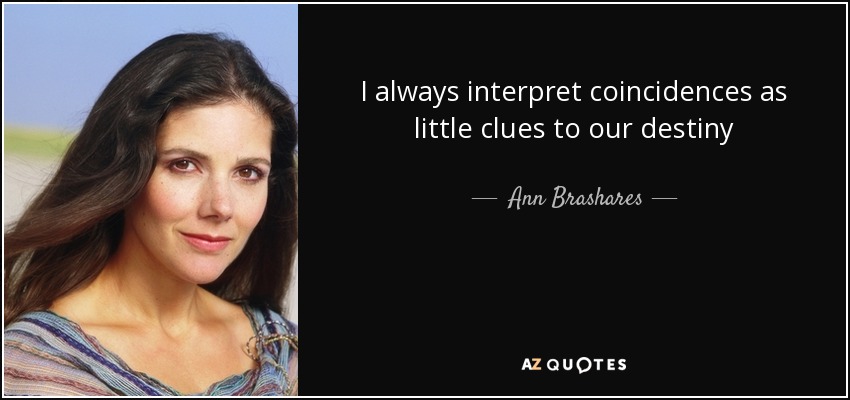
Related material
Drama Triangle
More than 40 years ago, the American psychiatrist Stephen Karpman introduced the “triangle of fate”, or “dramatic triangle”, a psychological and social model of interaction between people, consisting of three facets-roles: “persecutor” (English persecutor) , "rescuer" (English rescuer) and "victim" (English victim). The Karpman Triangle reflects the structure of co-dependent relationships.
The “pursuer” sets his own rules, controls, imposes his point of view, does not allow mistakes and is constantly looking for the guilty. When he cannot clearly show his anger, he blackmails and manipulates. The “victim” ignores his own needs, dissolves into the “persecutor” with whom, as it seems to her, she is connected with true love, and the thought of losing her introduces the “victim” into a panic. The "rescuer" feels his value through the imposition of help and a sense of superiority over the "victim". In co-dependent relationships, each of the participants at some point tries on one of the three roles, but cannot get out of the vicious circle, because he is afraid and denies the destructiveness of the situation.
The "rescuer" feels his value through the imposition of help and a sense of superiority over the "victim". In co-dependent relationships, each of the participants at some point tries on one of the three roles, but cannot get out of the vicious circle, because he is afraid and denies the destructiveness of the situation.
How to distinguish codependent relationships from healthy ones
We all depend on each other to some extent. Mutual support, emotional connection, dialogue, mood attunement, shared interests are all important factors in a healthy relationship. Codependent relationships are a toxic bond without which people cannot function. They lose their autonomy. Any difficulties in relationships with a partner are reflected in other areas of life, including interactions with loved ones, friends and colleagues. At the deep stages of codependence, a person can move away, avoid communication with the outside world, because talking about their relationship is scary, embarrassing and uncomfortable, any advice or hint of an unhealthy relationship is perceived with aggression and distrust.
If communication with a child was built through submission and disregard for his desires and he sought to please in order to earn the encouragement and “love” of his parents, as an adult, he will be more inclined to enter into codependence
the most important thing in life, the existentially important. An independent person may have a career in second place, a hobby in third, and travel in fourth. A codependent, on the other hand, will not be able to easily pass a value test by setting priorities from 1 to 10: all other areas of life pale against the backdrop of the significance of relationships with a partner, without them life is empty and meaningless.
Causes of co-dependent relationships between a man and a woman
The tendency to co-dependent behavior is often formed in childhood.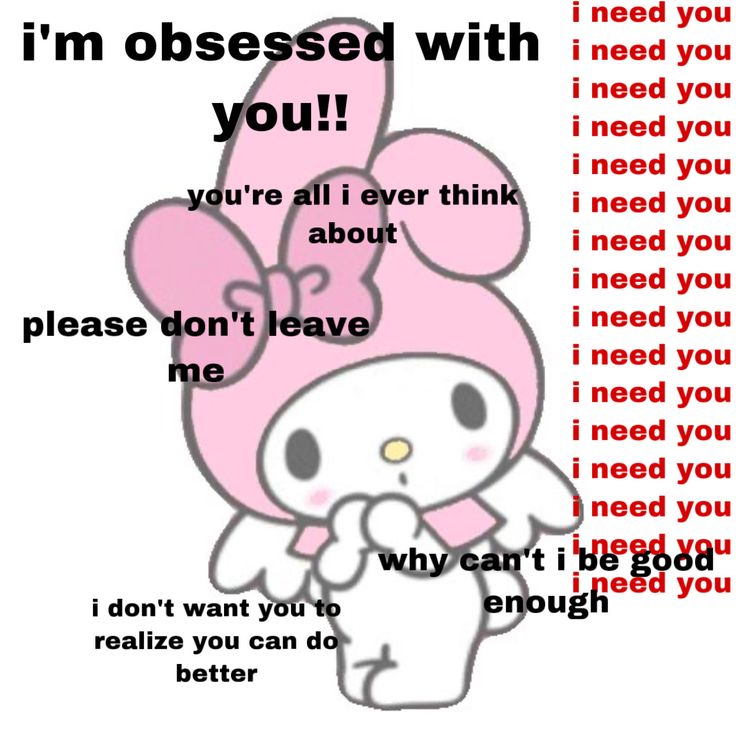 The reasons are related to the peculiarities of relationships in the parental family and how a close adult reacted to the needs of the child: was he sensitive to successes and peculiarities, was he emotionally available, did he give freedom of action, or, conversely, overprotected when the child could already do something do it himself and his life did not directly depend on the parent. It is noteworthy that any of the extremes can contribute to the formation of codependency in the future.
The reasons are related to the peculiarities of relationships in the parental family and how a close adult reacted to the needs of the child: was he sensitive to successes and peculiarities, was he emotionally available, did he give freedom of action, or, conversely, overprotected when the child could already do something do it himself and his life did not directly depend on the parent. It is noteworthy that any of the extremes can contribute to the formation of codependency in the future.
For a child, on a biological level, the absence of the love of a mother or other close relative who plays her role means death. Love in the family means that the child will be safe, he will not be abandoned, he will survive and his emotional needs will be met. Research shows that emotional abuse and neglect in childhood puts us at risk of developing codependent behavior in the future.
Related material
If communication with a child was built through submission and neglect of his desires and he sought to please in order to earn the encouragement and "love" of his parents, as an adult, he will be more inclined to enter into codependency in marriage, in a relationship with a romantic partner. This behavior is also called the "home instinct" - that is, the reproduction of the situation of childhood in their current relationship. This happens on an unconscious level.
This behavior is also called the "home instinct" - that is, the reproduction of the situation of childhood in their current relationship. This happens on an unconscious level.
For example, if a girl grew up without a father or he was an emotionally unavailable figure as an adult, she may look for a man who will show similar emotional stinginess: not revealing the details of his life to the end, being as if in a distance, avoiding frank conversations. At the same time, the girl may be aware of the similarities with the relationship of her parents, but she will be firmly convinced that now, in her personal life, she will be able to change everything and correct mistakes. For example, if her parents divorced, then she definitely will not allow this and her children will not be left without a father. However, the "home instinct" often leads not only to the repetition of patterns of behavior, but also leads to the same result.
Co-dependent people believe that if they behave correctly, find the right words, do something differently, they will magically earn the love of a partner
How to understand that you are in a co-dependent relationship
Co-dependency manifests itself in different ways. It is always necessary to evaluate the intensity and coincidence of several signs of a co-dependent relationship, among which: Show control behavior, impose your will. You expect your partner to behave in a certain and understandable way for you.
- Rapid rapprochement
You met and can't part, move in quickly, get married quickly. Often in this case, the idealization of the partner is inflated to the maximum. Our consciousness turns expectations and fantasies about the qualities of a partner into reality.
Our consciousness turns expectations and fantasies about the qualities of a partner into reality.
- Search for salvation
In another person you see salvation from your loneliness and inner emptiness. Career, hobbies, interests, life guidelines and principles - nothing but your partner can fill the void inside, only with him or her you feel "at home".
- No choice
You cannot recognize and respect your partner's right to make your own choices. The fact that his or her desires and decisions may differ from yours is frightening and not discussed.
- Impaired sensitivity to self and others
You are aware of only fragmentary knowledge about yourself and your partner, reproducing repetitions of your emotions and behavior from year to year. It's like living the same scenario. The dominant feelings and behavioral reactions in this scenario will be guilt, anger, fear, distrust, overprotection, overcontrol.
It's like living the same scenario. The dominant feelings and behavioral reactions in this scenario will be guilt, anger, fear, distrust, overprotection, overcontrol.
- Difficulty in accepting responsibility
Responsibility for your well-being, development, satisfaction of needs lies with the partner. You are guided by the phrase "I would, ... but ..." and as if living a draft of your life.
- The idea that your partner owes you
It's hard to negotiate in a codependent relationship. Attitudes regarding the behavior and responsibilities of a partner (for example, that a woman should be a muse, and a man should be a breadwinner) do not change from the beginning of a relationship and do not allow discussion.
- Low self-esteem
There is no inner conviction that you are worthy and valuable in yourself. You have constant doubts, and by your behavior you are trying to earn love, praise and prove that you have a right to it.
Related material
- Money problems
Being financially dependent on a partner makes us feel small and in need of care. This desire can again be associated with the “instinct at home”, because children do not have to and cannot provide for themselves. Fanatical accumulation may indicate the opposite - the fear of losing independence and asking for help. In a healthy relationship, flexibility is implied, where financial roles can be changed without juggling the roles of "rescuer", "victim" and "persecutor".
- Revenge and competition
If your partner made a mistake and did something unpleasant, instead of giving constructive feedback and discussing the issue, you harbor resentment. At the right moment, you repeat the behavior of your partner in order to hurt him or her and say with grim satisfaction "why you can behave like this, but I can't."
- Magical thinking
Codependent people believe that if they behave correctly, find the right words, do something different, they will magically earn the love of a partner. As in childhood: if I get an A or clean the house, my parents will praise and love me more.
In addition, codependent people often have behavioral addictions, such as workaholism, compulsive overeating, hoarding, or an obsessive need for perfect cleanliness and organization of space. The life of a codependent is similar to chaos, these habits help to ground and calm down in eternal anxiety, to create a feeling of control over one's life.
The life of a codependent is similar to chaos, these habits help to ground and calm down in eternal anxiety, to create a feeling of control over one's life.
Consequences of co-dependent relationships
In co-dependent relationships, a person seems to lose himself, personal boundaries are erased, hobbies disappear and attention to his needs disappears. At the same time, all resources are spent on maintaining toxic relationships, and not on trying to restore the psychological state.
Very often codependence characterizes cyclicity. A person experiences an emotional swing - happiness and a temporary idyll are replaced by aggression, manipulation, neglect. Moreover, such changes occur suddenly, so one of the partners is constantly in suspense, waiting at any moment for a change in the weather. It shatters the psyche and self-esteem.
It shatters the psyche and self-esteem.
Breaking up a relationship is not always the only way out. If desired, partners can change their relationship if they make this decision together and make an effort
The companion of co-dependent relationships is violence. It can be physical - blows, spanks, pushes, even hugs against the will; sexual - uncomfortable touching or sexual contact against the will and consent; emotional - insults and verbal injections, various manipulations of feelings. In families with a codependency problem, passive violence can also be observed in relation to children, when parents are emotionally unavailable: there is no swearing, but there are no warm words or physical contact. Also, the responsibilities of an adult may not be transferred to the child in a timely manner - for example, the elder is expected to constantly care for the younger ones.
Violence is terrible both in itself and in its consequences. Children often develop attachment trauma that will prevent them from building trusting relationships in the future. If a person managed to get out of a co-dependent relationship, but failed to undergo personal therapy or it was insufficient, the risk of a vicious circle and a repetition of the experience with another partner is high.
How to get out of a codependent relationship
People who are prone to codependence are afraid of parting. This is a painful process, often a couple exhausted by toxic relationships does not have enough resources and energy for it. But breaking up is not always the only way out. If desired, partners can change their relationship if they make this decision together and put effort into it.
Related material
Each situation is different, so it is not possible to give a short universal scheme.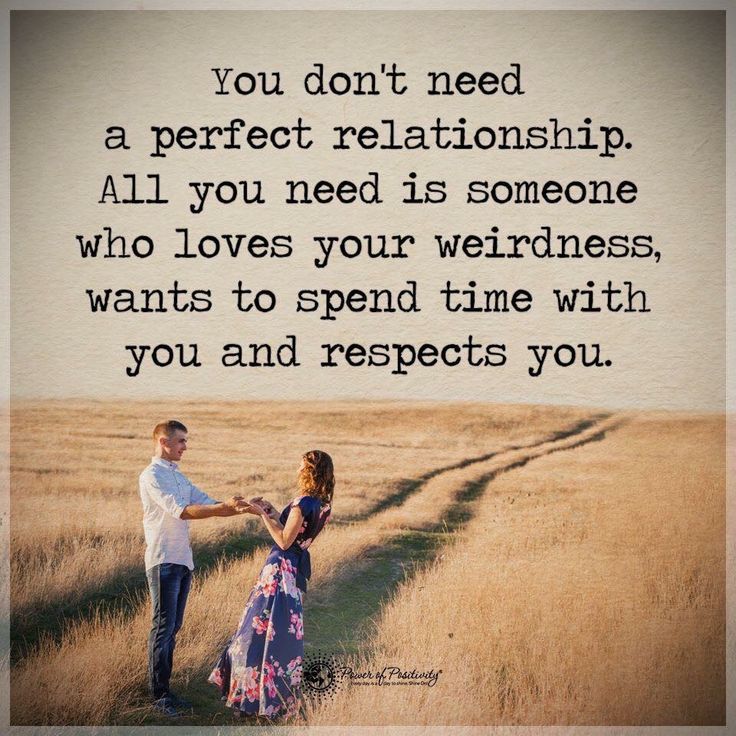 But here are some strategies and exercises to get you started:
But here are some strategies and exercises to get you started:
- Self-diagnosis. Ask yourself these questions: Why am I not happy with the relationship? What are my needs being ignored? What is the value of this relationship for me? Do our views coincide with the partner regarding the development of our relations? Do I have unrealistic ideas about the future of our relationship? Am I ready to be with my partner if he/she doesn't stop meeting my expectations? What exactly do I want to change? What efforts am I willing to make for this?
- Work through childhood trauma and relationships with parents. Find out what processes you transfer to communication with a partner. It is best to do this with the support of a psychologist.
- Shift the focus from your partner's desire to your desires.
 Ask yourself what exactly you want.
Ask yourself what exactly you want.
- Make a list of what you have in common and what is different with your partner. Try to learn to respect and accept your differences.
- Keep a diary of feelings. Keep track of what emotions cause you certain situations in communication with a partner.
- Focus on yourself, your interests and relationships with friends and loved ones. Find a new hobby, travel, or study.
- Work with the fear of being alone. Again, it is better to do this with a psychologist.
- Make a list of grievances against your partner, analyze them and try to identify what you are grateful for, what lessons you learned from them.

- Talk to your partner about couples or family therapy.
If you want to start the path out of co-dependency on your own, turn to self-help literature - for example, read the books of the book "Free from Addiction" by Berry and Janey Weinhold, "Codependency Through the Eyes of a Systemic Therapist" by Natalia Manukhina, "Hug Me Tight. 7 Dialogues for the Love of a Lifetime Susan Johnson, Borrowed Life by Irina Mlodik.
Get ready that the process of leaving a codependent relationship is not quick and difficult. Don't neglect help. In addition to psychotherapy, you can seek support in special free groups. CoDa (“Codependents Anonymous”) is an international community that organizes meetings, including online in Russian. Nar-Anon and Al-Anon help those whose co-dependent relationships involve the drug and alcohol addiction of one of the partners.
Codependency is the desire to oversleep your life
— Is the explosion of interest in various psychological theories that we are seeing today a good thing? Will popular psychology really help us explain much about ourselves and live better?
- Attention to one's condition, motives, intentions is a good trend. But there are sad examples: seemingly smart people begin to simplify the secret of the world and the human soul to some kind of cliché.
Someone uses religious terms and just says, "temptation!" or "pride!", and someone - psychological. Then he easily issues a verdict: “this is toxicity!” or “It’s codependency!”
It is important to remember that any term reflects only part of reality, and real life is richer. The term helps to orient oneself, but carries the danger of premature extinction of research interest in the world, and, as a result, in a simplified view of life.
- One of the main "enemies" of has recently been declared "co-dependency".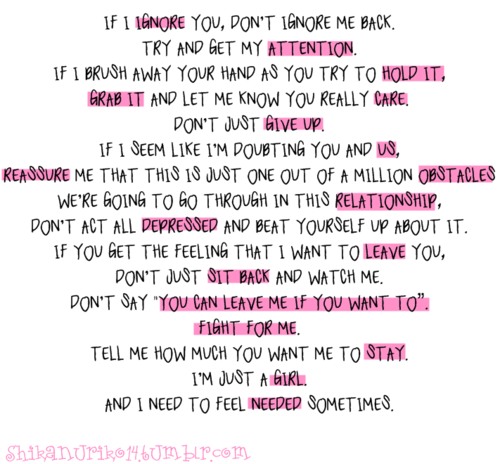 This word began to refer to almost any situation where one person is deeply involved in the life of another. And what is codependency from the point of view of classical psychiatry and psychology?
This word began to refer to almost any situation where one person is deeply involved in the life of another. And what is codependency from the point of view of classical psychiatry and psychology?
- All people feel some kind of response in the soul to the actions or mood of loved ones. We can talk about codependency when this response is excessively intense and uncontrollable.
Healthy relationships mean that I can be very close to someone, but I can also calmly wait out a separation or disagreement by turning my attention to something else.
Initially, psychologists called codependence the state in which, for example, the wife of a person suffering from alcoholism or drug addiction finds herself: her whole life is built around saving her chosen one from addiction. Then codependency began to be called such behavior in a relationship in which we act out of fear, guilt or shame, and not out of interest, curiosity, empathy, love.
For example, if I respond to my wife's suggestion to go somewhere, only not to offend her or avoid accusations and reproaches, this is not my free response to the world, but an attempt to avoid trouble.
At the same time, there is no single definition of codependence. Moreover, some psychologists oppose the use of this term, considering it detrimental to therapy.
- Can a person himself determine that he is in a co-dependent relationship?
- In its purest form, there are no co-dependent and non-co-dependent relationships. It is more correct to speak about the degree of co-dependence. In one pair, codependent reactions appear more often, in the other - less often.
It's good to ask yourself from time to time: Is my preoccupation with worrying for a loved one a way to avoid something in my own life? Is there anything else, besides our relationship, that I value and that I consider valuable? How often do we have anger, fear, and blame in our relationships? Do we bring joy to each other, or are we content with temporary calm after mutual exhaustion, when there is no longer the strength to swear?
Let's say a mother is worried when her teenage son is walking alone. How do you know if it's "healthy" anxiety? If this mother has an interesting job, satiating relationships with her husband, with friends, has some kind of hobby or study, and plus she worries about the child, then most likely there is a balance in her life, and anxiety is a natural manifestation of care. But if all the thoughts of a mother are focused on the safety of her child, and because of this, her own life is impoverished, then perhaps the question of codependency arises.
How do you know if it's "healthy" anxiety? If this mother has an interesting job, satiating relationships with her husband, with friends, has some kind of hobby or study, and plus she worries about the child, then most likely there is a balance in her life, and anxiety is a natural manifestation of care. But if all the thoughts of a mother are focused on the safety of her child, and because of this, her own life is impoverished, then perhaps the question of codependency arises.
- What is the role of the other party here?
- “Codependency” is a synonym for “emotional dependence”, and the actions or inaction of the other party do not play a big role for the dependent. Any partner will sooner or later refuse me, express some opinion different from mine, want to be alone or offer something that does not suit me. Then the degree of my experiences and response actions will show what is the degree of my emotional dependence in this relationship.
- But after all, there are situations when dependence up to the merger is almost inevitable: for example, a seriously ill person appears in the family, who needs to be looked after inseparably. How not to lose yourself in such a situation?
How not to lose yourself in such a situation?
— It is important to be honest with yourself to what extent my service is an act of mercy, and to what extent it is a way to hide from my own life.
It is necessary to find in the heart not only pity, but also respect for another person, for his fate. Think about what is in my power and what is not in my power. Where possible, set realistic conditions. For example: “Mom, if you continue to humiliate and insult me, I won’t be able to bring you food myself, but I will order delivery.”
From the outside, it is most often tactless and unprofessional to give recommendations: a person who finds himself in a similar situation needs a lot of inner work and psychological help, because it is really very easy to get confused here.
Codependency comes from childhood?
— Are there any preconditions for codependent behavior? Maybe a special type of personality?
- Difficulties in approaching or moving away refer us to childhood, when we mastered close relationships, but did not have sufficient resources.
Every child faces a drama from time to time: I need my mother, but she is unavailable (went out to the store, talking on the phone, angry, sick). Some children manage to learn how to cope with such situations, while others do not. It depends on the strength of the nervous system, the support of other adults, the parenting strategies of the mother, how long she has been away, etc.
For the successful development of the psyche, it is important not so much to avoid periods of break (it is at such moments that growing up, mastering the skills of self-consolation and switching to something other than a loved one) is important, but to ensure that they correspond to the age and mental capabilities.
Those who did not learn to cope with the unavailability of a loved one in early childhood may develop a tendency to co-dependent behavior. Then, when parting with a loved one or even when there is a disagreement, infantile mechanisms turn on: it seems to a person that he is disappearing, that something urgently needs to be done . .. Instead of looking for internal supports, he puts all his strength into preventing a traumatic situation, up to physical impact. So the basis of the behavior of many people with tyrannical, abusive tendencies is precisely codependency - as the inability to survive a breakup.
.. Instead of looking for internal supports, he puts all his strength into preventing a traumatic situation, up to physical impact. So the basis of the behavior of many people with tyrannical, abusive tendencies is precisely codependency - as the inability to survive a breakup.
Note that the skills to build healthier close relationships can be developed in adulthood, if desired.
To live and create without collapsing
- Е , sports, charity, took monastic vows, in the end?
— Science, sports, monasticism, family can be both a manifestation of life and a way to hide from it and from oneself. The soul of a person and his choices are sacred territory, and to judge from the outside what drives a person: illness or the Spirit is a disrespectful, unethical occupation.
There are many successful and bright creative people who created something great and did not destroy themselves (although there are plenty of opposite examples). They were periodically absorbed in work, but also had a happy family, knew how to make friends, loved nature, helped someone.
They were periodically absorbed in work, but also had a happy family, knew how to make friends, loved nature, helped someone.
It is important to be attentive to yourself: if I am satisfied with the fruits that my passion gives, and the price that I pay for it, then why not? For example, I understand that I didn’t get enough sleep, that my back hurts, but I continue to work, because it’s more important to finish the job now. This is normal as long as there is an opportunity to weigh the pros and cons and the ability to make a conscious choice is preserved. If a person is simply “carried somewhere”, and the inner voice says “I’m not all right”, if there is a taste of bitterness and shame, this is a reason to think.
A light burden of responsibility
— It turns out that the best prevention of addiction and codependency is awareness and responsibility for your choice. But many are afraid of this, and shift the responsibility for their lives onto their parents, confessors, friends. ..
..
— Every person's psyche is designed for its own measure of responsibility. Not everyone can swim across the ocean alone! Some people need close contact with a mentor to cope with anxiety and uncertainty.
Addictions are often erroneously contrasted not with maturity, but with the so-called “counter-dependence” – the inability to get close to others. But we all somehow need some kind of belonging, community, circle of like-minded people, teachers and mentors.
Let me emphasize once again that mentoring in itself is a quite natural thing in any business: in sports, music, spiritual path. The healthier the relationship was, the more sadness and gratitude will be when parting with the teacher. The more "addicted" - the more horror and guilt.
- However, mentoring can be a fertile ground for manipulation. This is often found in the Orthodox environment, where a lot is said about obedience and that it is dangerous to trust one's feelings and thoughts, to show "self-will. "
"
— It really happens that sacred meanings are used for manipulation or self-justification. For example, philanthropy and cowardice masquerade as humility. Instead of saying: “Stop, you can’t do this with me!”, A person endures, although it would be more honest to admit to himself: “I want to say no, but so far I don’t have enough strength. Where could I get this strength to start changing these relationships?”
Two tendencies coexist in us: the desire to open up, to realize oneself in the world and the desire to hide, move away, fall asleep. And this desperate part can grab something from our religiosity to justify its inaction.
Another example: workaholism in the Christian environment is sometimes given the sacred meaning of “self-denial”. Sometimes it is clear that a person is exhausted, but those around him, instead of drawing the person’s attention to his condition, can, being interested in his work, talk about “lack of love” or “spiritual laziness”. If a person has not completely lost the instinct of self-preservation, then sooner or later an internal conflict will arise between the usual attitudes (I always owe everything to everything) and frankly poor health, loss of interest in life.
If a person has not completely lost the instinct of self-preservation, then sooner or later an internal conflict will arise between the usual attitudes (I always owe everything to everything) and frankly poor health, loss of interest in life.
Unfortunately, there are people who do not have time to develop internal resistance and become extremely exhausted and burn out. I see this as a manifestation of despair: a person, as it were, agrees that he will not be able to build a satiating, interesting relationship with life.
You know how sometimes it happens - the day is so unfortunate that you want to finish it as soon as possible and go to bed. So a person can decide to spend his life in the half-asleep of workaholism or debilitating relationships, when it is seen as so unbearable that hope is lost of correcting it.
— But Christianity really teaches us sacrifice, humility, self-denial… And, at least at first glance, it is difficult to reconcile it with the ideas that are popular today about defending personal boundaries, self-worth, building “healthy relationships”.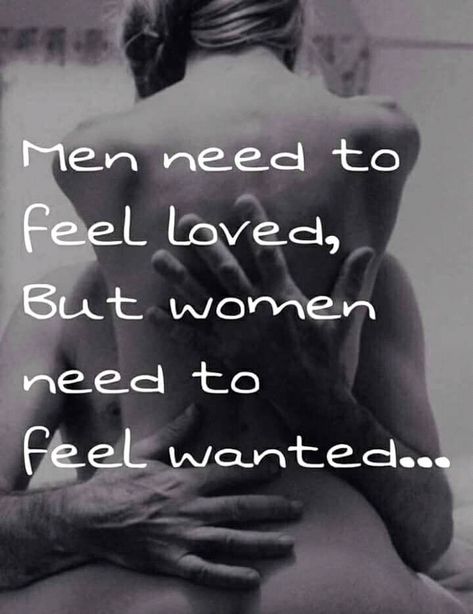
— It seems that in Christianity there really is this contradiction. In Scripture and Tradition we find both the call to give ourselves without reserve and the words that we are “bought with a price”, that God gives life as a precious gift. Each of us has to solve this puzzle somehow.
In asceticism the virtue of sacrifice is balanced by the virtue of humility. Humility is designed to remind a person of his limits and the physical limitations of the real world: “I can do this today, but I definitely can’t do this.”
If a self-denying person imagines himself a superhero, there is hope that he will remember the passion of pride and how important it is to turn life over to God. So Christians also have some mechanisms of balancing between omnipotence and impotence.
A good question to ask yourself is: how responsive am I to feedback? Do I respect the personality of the person I help, do I accept his choices and opinion? Sometimes a sacrificial Christian notices that people are literally hiding from him and his help.

